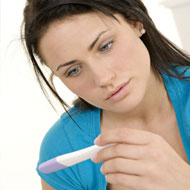- General Articles
- General Pregnancy Questions
- Baby Growth
- Pregnancy Diet
- Miscarriage
- During Pregnancy
- Twin Pregnancy
- Toddler Meals
- Home Remedies During Pregnancy
- Breastfeeding
- Pregnancy Week By Week
- Pregnancy Tests
- Ectopic Pregnancy
- Pregnancy Signs and Symptoms
- Pregnancy Stages
- Potty Training
- Fetal Development
- Preschooler
- Postpartum Depression
- Toddler Illness
- Baby Care
- After Pregnancy
- Molar Pregnancy
- During Delivery
- Beauty and Style
- Pregnancy Clothing
- Preconception
- Fertility
Alcohol and Fertility
It is no secret that pregnant or lactating women should not drink, as it may have unwarranted effects on the baby. It is equally important to understand the link between alcohol and fertility, because alcohol could also significantly influence the ability to conceive. The fertility of both men and women is affected by the amount of alcohol they consume. Though just one occasional drink may not be very harmful, drinking more than that may have some serious consequences.
Effect on male fertility
According to studies, alcohol can hamper the functioning of each part of the male reproductive system, consisting of, the hypothalamus, the anterior pituitary gland, and the testes This could result in infertility, impotency and problems with male secondary sex characteristics, like reduction in facial and chest hair, enlargement of the breast and fat deposition in the hip area. Some of the effects of alcohol on male fertility include:
- Adverse effect on Leydig cells in the testes. These cells are responsible for production and secretion of testosterone hormones.
- Shrinking of the testes. Impairs normal functioning of Sertoli cells in the testes. Sertoli cells, is the place where the spermatozoa is produced and research indicates sperm abnormalities in men who consume a lot of alcohol.
- Decreases production and activity of, luteinizing hormone and follicle-stimulating hormone in the pituitary glands. These hormones play an important part in the male reproductive system.
- Interferes with hormone production in the hypothalamus
Effect of alcohol on women's fertility
Many studies conducted to investigate the long-term effects of alcohol consumption on female fertility have concluded that consuming high amounts of alcohol could seriously affect the ability of the female to bear children. The infertility level may be directly proportionate to the level of consumption. More the consumption, more are the chances of problems with fertility.
It has been observed that even women, who consumed less than five drinks in a week, took longer to conceive because of decreased fecundabilitycaused due to intake of alcohol. Fecubdability refers to the high chances of conceiving during a particular period in one menstrual cycle.
The profound effects of alcohol on the female body are plenty resulting in low levels of fertility. Just some of these effects may include:
- Disruption of a normal menstrual cycle.
- Higher chances of anovulation. Anovulation refers to a menstrual cycle in which the oocyte or egg cells are not released and therefore ovulation does not occur.
- Adversely affects the endometrium, which is the inner membrane of the uterus. The endometrium is the part in the uterus which thickens every month, so that fertilized eggs can get implanted and grow.
- Affects levels of progesterone and estrogen hormones in the body. These hormones play an important part in a woman’s menstrual cycle and pregnancy.
Effect on unborn child
Most women who wish to have children may be aware that they should avoid alcohol because it can have detrimental effects on the unborn child, but many may not be aware of just how serious it could be. There is no such thing as a safe level of alcohol during pregnancy, because even a small amount could be harmful to the growing fetus, leading to life-long problems.
Every time a woman drinks, her baby drinks too, because it passes easily from the mother’s placenta into the child’s bloodstream. Prenatal exposure to alcohol can affect just about any part of the baby’s body, including the face, eyes, ears, bones, kidney, liver, heart and the brain.
Some studies even indicate that individuals exposed to alcohol in the prenatal stage have smaller brains, or may have damaged brains with missing parts. This brain damage could in turn lead to mental retardation, learning disabilities and attention problems.
Some of the ways alcohol can affect the unborn child are as follows:
- Triggers cell death causing abnormality in fetus development.
- Disrupts development of nerve cells.
- Constricts blood vessels, thereby hindering blood flow in the placenta and supply of nutrients and oxygen to the unborn baby.
- Toxic byproducts of alcohol could increase chances of developing FASD (fetal alcohol spectrum disorder).
Read more articles from the Fertility Category.



 7 Must-Haves Before Your Baby Arrives
7 Must-Haves Before Your Baby Arrives Bonding Games for Babies
Bonding Games for Babies DIY Baby Bath Towel Apron
DIY Baby Bath Towel Apron Common Late Pregnancy Fears
Common Late Pregnancy Fears